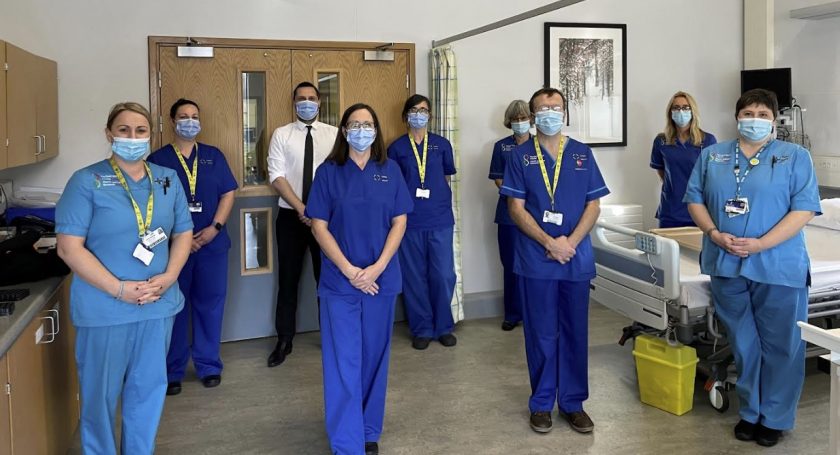First plant-derived Covid vaccine trial studied in Wales found to be effective

Welsh volunteers were one of the first in the world to receive the Medicago Covid-19 vaccine (CoVLP) which has been found to be 75.3% effective against COVID-19 of any severity caused by the globally dominant Delta variant.
The global Medicago vaccine study set to be the world’s first plant-derived ran across 11 sites in the UK, including Public Health Wales. From the 24,146 participants from across the world involved in the study, the highest number of 18-35-year old volunteers were from Swansea and the local areas.
Efficacy was demonstrated against all variants seen in the study, including 75.3% efficacy against COVID-19 of any severity caused by the globally dominant Delta variant. The vaccine was also found to be 88.6 percent effective against Gamma (Brazilian variant) and the overall vaccine efficacy rate against all variants of SARS-COV-2 was 71%.
The vaccine was well-tolerated, with no related serious adverse events reported and based on today’s results, the regulatory filing process is already underway with FDA, MHRA and WHO.
Volunteers tested the effectiveness and safety of the fourth vaccine for COVID-19 in May and June this year.
One participant involved in the study was Alice Briggs, a 24-year-old delivery driver from Bridgend.
She said: “I found out about the study by a text from my GP. After a screening, I was given the green light to be in the trial.
“I was pretty relaxed about taking part – the vaccines go through testing beforehand, and us participants are the final stage.
“I was seeing people I knew getting COVID-19, and suffering quite badly with it. So, I thought if this is going to save lives and help overcome disease down the line, let’s crack on!
“I’m happy to do my part. I wanted to do anything that could help get us back to normal.”
The vaccine is produced in a form of coronavirus-like particles, known as CoVLPs, which are about the same shape and size and look very similar to live coronaviruses. However, they do not have any viral genetic material which means they cannot cause the disease.
The CoVLPs are combined with an adjuvant (an ingredient that may enhance the body’s immune response) before the vaccine is given. This allows for a smaller dose of the vaccine to be given, meaning more doses would be available to vaccinate more people, once the vaccine is approved.
The collaborative team involved in delivering the study in Wales was Public Health Wales, Health and Care Research Wales, Swansea Bay University Health Board and Swansea University Medical School.
Dr Brendan Healy is Principal Investigator for the Medicago trial and Consultant in Microbiology and Infectious Diseases at Public Health Wales, said: “It’s important for us to continue to develop new vaccines and treatments for COVID-19 as we continue to learn more about the virus and its variants. One of the advantages of this plant-derived technology is that it enables the vaccine to be produced at scale without any cold storage restrictions.
“Vaccinations are the most important tool to help us fight this virus and I’m so proud of the teams across Health and Care Research Wales, Swansea Bay University Health Board and Swansea University who contributed and worked so hard on this study.”
Dr Nicola Williams, Director of Support and Delivery at Health and Care Research Wales, which is nationally co-ordinating research and study-set up in Wales, said: “The Medicago vaccine is the fourth vaccine to be trialled in Wales alongside multiple treatments to help reduce the severity of the virus.
“Wales contributed the most participants to this trial in the UK, which is a great achievement showing the valuable data we contributed to help millions of people across the world.
“We are extremely grateful to all the individuals that came forward to help with the trial, as without them we wouldn’t have this information.”
As well as the 11 sites in the UK, the Medicago vaccine study took place in multiple sites in the United States, Canada, Europe and Latin America enrolling 24,146 volunteers worldwide.
Spotted something? Got a story? Email: [email protected]
Latest News
